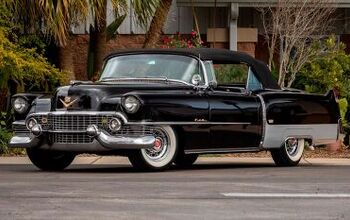QOTD: Is Australia The Canary In The Coal Mine For Canada?
The latest round of bad news regarding the Australian domestic auto industry has shifted TTAC’s attention to Canada, another country burdened with some similar issues. If Australia’s own car industry is getting hammered, then how much longer does Canada have?
Australia’s car market was once far more protected, but the reduction of imported vehicle tariffs and cheap exported cars from countries like Japan and Thailand have made locally built cars an extremely expensive proposition. Unlike Canada, Australia’s vehicle exports are minimal, and the domestic car industry has been reduced to relying on local consumers and government handouts to help stay afloat. While Australia has rapidly switched from locally-made, thirsty V8 sedans to small, fuel-efficient compacts, Canada has always had a taste for gas-sippers. Hell, two of them (the Honda Civic and Toyota Corolla) are even built there.
But Canada now finds itself in a paradox; the country relies on exports, yet has a very strong currency. Once upon a time, Canada’s dollar was worth around 62 cents, which made it a much more attractive place to build cars. The loonie’s recent rise to parity has made it significantly more expensive to build cars in Canada, and it’s not just the auto makers who are recognizing this.
An Automotive News article quotes one Canadian Auto Workers union official who seems resigned to the fact that increasing costs mean dwindling prospects for Canada’s auto manufacturing industry.
“As those costs increase — 40, 60 percent — we simply can’t compete anymore,” said Ron Svajlenko, the president of Canadian Auto Workers Local 222, the union whose membership has dwindled to 3,500 from 12,000 in 2002. “When it comes to a decision about where you’re going to do things, you go to where the costs are low.”
The CAW was a very tough negotiating partner for the Big Three in the last round of contracts, managing to stave of a full implementation of a UAW-style two-tier wage system for new hires. But the CAW didn’t get all of the investment it was looking for either. While Ford got a commitment to upgrading the Oakville plant, upgrades for Chrysler’s Brampton plant (which builds the LX cars) never materialized and GM even shifted product out of Canadian factories, leaving the future of its Oshawa Assembly plant in doubt. Canada, and the province of Ontario still maintain some advantages; a publicly funded healthcare system and a generous regime of tax credits and low rates for corporate income tax can be compelling reasons for auto makers to continue to build cars in Canada.
But the currency issue will remain a thorn in the side of Canada and Australia, albeit for different reasons. Canada’s strong dollar makes it not only unprofitable to build cars there, but also gives the OEMs a good reason to pack up for low-cost Mexico or, even better, “bring jobs home”, as in the case of GM moving production of the Impala (at least in part) back to Detroit.
More by Derek Kreindler
Latest Car Reviews
Read moreLatest Product Reviews
Read moreRecent Comments
- Varezhka Maybe the volume was not big enough to really matter anyways, but losing a “passenger car” for a mostly “light truck” line-up should help Subaru with their CAFE numbers too.
- Varezhka For this category my car of choice would be the CX-50. But between the two cars listed I’d select the RAV4 over CR-V. I’ve always preferred NA over small turbos and for hybrids THS’ longer history shows in its refinement.
- AZFelix I would suggest a variation on the 'fcuk, marry, kill' game using 'track, buy, lease' with three similar automotive selections.
- Formula m For the gas versions I like the Honda CRV. Haven’t driven the hybrids yet.
- SCE to AUX All that lift makes for an easy rollover of your $70k truck.


































Comments
Join the conversation
I think Canada's policies are greatly influenced by it's dominant southern neighbour, the US. I get called anti-American because of my comments, but countries are required to do what's best for them. If Canada make decisions that the US disagrees with doesn't make them anti-American. The same goes for Australia. Canadian mining is gradually going west, across the Pacific, even its oil. The Canadians must realise that the US will put itself first over Canada when it comes to trade. The US can survive without Canada, but Canada can't survive without the US at the moment. Canada needs to look off shore more for its future, like we do. We are very pro American or I could even say Australia, Canada, US and the UK are very closely aligned. Anglophiles. Canada can't ignore the Chinese either, they will become a force much greater than the US ever was. But the US is your neighbour and will always influence. They are between a rock and a hard place at times.
Let's take this with a grain of salt... when major automakers say things like this the subtext is always "give us subsidies and/or wage concessions or we'll take all our jobs elsewhere." By any measure the Canadian dollar is very overvalued (20-40%) and that situation doesn't last forever.